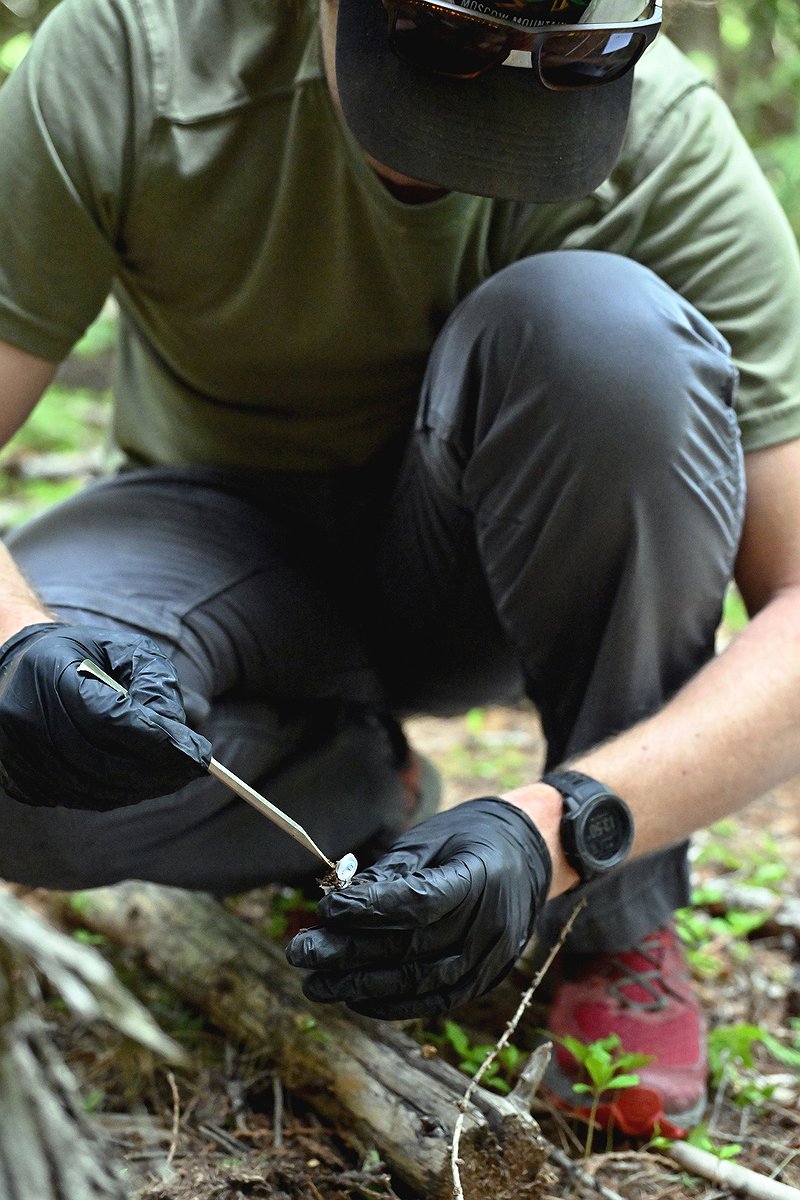'We will be impacting the world'
A member of the Coeur d'Alene Tribe is part of a multidisciplinary team led by University of Idaho researchers that received a $15-million grant to study the long-term impact of drought and fire on forest ecosystems.
The six-year award is from the National Science Foundation’s Biology Integration Institutes, which is dedicated to supporting diverse and collaborative teams to attack critical biological questions that span multiple disciplines through research, education and training.
The funding will create the EMBER (Embedding Molecular Biology in Ecosystem Research) Institute and bring together researchers from a variety of institutions and backgrounds — from experts across biological disciplines including molecular and cellular biology, organismal physiology and ecosystem sciences.
“We are looking at how stress caused by increasing drought and wildfire affects forest recovery and resilience. By working together, we are not just investigating how trees or microbes respond but how organisms depend on each other to survive,” said Tara Hudiburg, principal investigator for EMBER and professor in U of I’s Department of Forest, Rangeland and Fire Sciences.
The team includes both experimentalists and modelers — two groups of people who usually work separately — and the results of this collaboration may impact the way the world tackles climate change.
“Working in siloed disciplines has been our traditional approach as scientists, but we no longer have time for incremental progress,” said Laurel Lynch, assistant professor in U of I’s Department of Soil and Water Systems and co-principal investigator on EMBER. “We hope that bringing our disciplines together will help us to understand these dynamic systems as a whole and inform the policies that tackle pressing issues like climate change.”
One of EMBER’s partners is the National Center for Atmospheric Research, which participates in intergovernmental climate policy groups worldwide.
“It’s not a big leap for us to be able to say that we will be impacting the world,” Hudiburg said.
Chris Marx, biology professor at U of I and another co-principal investigator on the project, hopes EMBER will identify a tangible way to help plants and microbial communities re-establish after a fire.
“How do you grow in ash? Especially since ash is such a challenging environment for organisms,” Marx said. “We want to explore how rapid evolution within microbial species and communities can influence tree survival, and whether we can use this information to help forests survive and thrive after a wildfire.”
EMBER’s responsibilities include community outreach. EMBER will partner with the Coeur d’Alene Tribe and the Bonneville Environmental Foundation to establish an Indigenous Innovation Lab for tribal and rural students, develop a unique teacher fellows training program and engage with citizens from across the political spectrum — including climate change skeptics.
As such, the EMBER team is partnering with U of I’s McClure Center for Public Policy Research and RepublicEn, a conservative organization dedicated to solving climate change by hosting discussions in a non-combative political space.
“This award is well suited to the research expertise of our faculty leads here at University of Idaho,” Vice President for Research and Economic Development Chris Nomura said.
The team includes Laura Laumatia from the Coeur d’Alene Tribe.
This project was funded to University of Idaho by the National Science Foundation. The total project funding is $2,669,046, with an estimated total of $15 million in the future, of which 100% is the federal share.



